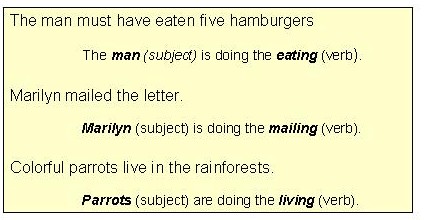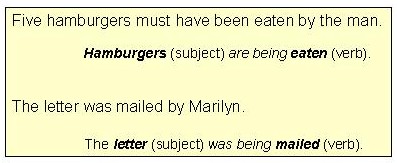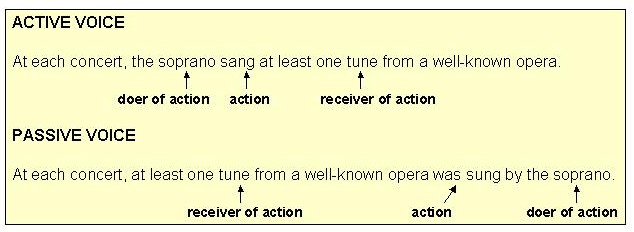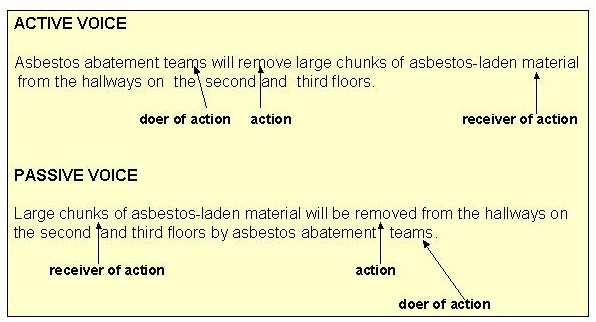Modal and Modal Phrases (Semi-Modals)
A modal is a type of auxiliary (helping) verb
that is used to express: ability, possibility, permission or
obligation. Modal phrases (or semi-modals) are used to express the same
things as modals, but are a combination of auxiliary verbs and the
preposition to. The modals and semi-modals in English are:
- Can/could/be able to
- May/might
- Shall/should
- Must/have to
- Will/would
Can, Could, Be Able To
Can, could and be able to are used to express a variety of ideas in English:
am not/ isn’t / aren’t/ won’t be + able to + base form of the verb
wasn’t / weren’t + able to + base form of the verb
hasn’t / haven’t + been able to + base form of the verb
Ability/Lack of Ability
Present and Future:
can/can’t + base form of the verb- Tom can write poetry very well.
- I can help you with that next week.
- Lisa can’t speak French.
am not/ isn’t / aren’t/ won’t be + able to + base form of the verb
- Mike is able to solve complicated math equations
- The support team will be able to help you in about ten minutes.
- I won’t be able to visit you next summer.
Past:
could / couldn’t + base form of the verb- When I was a child I could climb trees.
wasn’t / weren’t + able to + base form of the verb
hasn’t / haven’t + been able to + base form of the verb
- I wasn’t able to visit her in the hospital.
- He hasn’t been able to get in touch with the client yet.
- Incorrect: I can to help you this afternoon.
- Correct: I can help you this afternoon.
- Correct: I will (I’ll) be able to help you this afternoon.
Possibility / Impossibility
can / can’t + base form of the verb- You can catch that train at 10:43.
- He can’t see you right now. He’s in surgery.
- I could fly via Amsterdam if I leave the day before.
Ask Permission / Give Permission
Can + Subject + base form of the verb (informal)- Can you lend me ten dollars?
- You can borrow my car.
- Could I have your number?
- Could I talk to your supervisor please?
Make a suggestion – To make a suggestion use:
Could + base form of the verb (informal)- You could take the tour of the castle tomorrow.
Exercises: Can, Could, Be able to
Fill in the correct form of can, could or be able to as in the examples.
- Ben could not help his little brother with his homework yesterday.
- Can I call you later tonight?
- _______ Tony run long distances when he was a boy?
- ______ you please call a tow truck for me? My car broke down. (polite)
- The students _______ to buy their textbooks today. The bookstore is all out of them.
- ______ you teach me how to fix my computer? You’re so good at it.
- ______ you ______ reach the customer if you call him at 4:00 his time?
- Could
- Could
- aren’t able
- Can
- Will/be able to
May, Might
Formal Permission / Formal Prohibition
may / may not + base form of the verb- You may start your exam now.
- You may not wear sandals to work.
Polite Request
May + subject + base form of the verb- May I help you?
Possibility / Negative Possibility
may/ might + base form of the verb- We may go out dinner tonight. Do you want to join us?
- Our company might get the order if the client agrees to the price.
- Adam and Sue may not buy that house. It’s very expensive.
- They might not buy a house at all.
To Make a Suggestion (when there is no better alternative)
may as well / might as well + base form of the verb- You may as well come inside. John will be home soon.
- We might as well take Friday off. There’s no work to be done anyway.
Polite Suggestion
might + base form of the verb- You might like to try the salmon fillet. It’s our special today.
Exercises: May / Might
Fill in the correct form of may or might as in the example.
- May I sit here?
- They ______ finish the project on time. The main engineer is ill.
- You _____ want to stop by the museum gift shop on your way out.
- _____ I have your autograph?
- He _______ visit the Louvre. He’s in Paris anyway.
- You ______ park your car here. It’s reserved for guests of the hotel only.
- might not
- might
- May
- may as well
- may not
Shall, Should, Ought to
To Offer of Assistance or Polite Suggestion (When you are quite sure of a positive answer)
Shall + subject + base form of the verb- Shall we go for a walk?
To Offer of Assistance or Polite Suggestion (When you are not sure of a positive answer)
Should + subject + base form of the verb- Should I call a doctor?
A Prediction or Expectation that Something Will Happen
should/shouldn’t + base form of the verb- The proposal should be finished on time.
- I shouldn’t be late. The train usually arrives on time.
To Give Advice
should / ought to + base form of the verb- You should check that document before you send it out.
- You ought to have your car serviced before the winter.
To Give Advice (about something you think wrong or unacceptable)
shouldn’t + base form of the verb- James shouldn’t teach him words like those.
Exercises: Should, Shouldn’t, Ought To
Fill in should, shouldn’t or ought in the following sentences as in the example.
- He shouldn’t encourage such bad behavior.
- You _____ get your teeth cleaned at least once a year.
- The house ______ be ready to move into by next month. It’s almost finished.
- Ron ________ to improve his attitude. If he doesn’t, he might get fired.
- ________ I get your jacket? It’s cold in here.
- You ________ put your feet on the table. It’s not polite.
- should
- should
- ought
- shall
- shouldn’t
Must, Have to, Need to, Don’t have to, Needn’t
Necessity or Requirement
Present and Future:
must / have to / need to + base form of the verb- You must have a passport to cross the border.
- Elisabeth has to apply for her visa by March 10th.
- I need to drop by his room to pick up a book.
Past:
had to / needed to + base form of the verb- I had to work late last night.
- I needed to drink a few cups of coffee in order to stay awake.
Almost 100% Certain
must + base form of the verb- Thomas has lived in Paris for years. His French must be very good.
To Persuade
must / have to + base form of the verb- You must try this wine. It’s excellent.
- You have to visit us while you’re in town.
Prohibited or Forbidden
must not / mustn’t + base form of the verb- You must not drive over the speed limit.
- You mustn’t leave medicines where children can get to them.
Lack of Necessity
don’t /doesn’t /didn’t + have to + base form of the verb- You don’t have to park the car. The hotel valet will do it for you.
- Tim doesn’t have to go to school today. It’s a holiday.
- You didn’t have to shout. Everyone could hear you.
- You needn’t worry about me. I’ll be fine.
Exercises: Must, Have to, Need to, Don’t Have to, Needn’t
Fill in the blanks with one of these modals:
must, must not, have to, has to, don’t have to, doesn’t have to, needn’t as in the examples.
There may be more than one correct answer.
must, must not, have to, has to, don’t have to, doesn’t have to, needn’t as in the examples.
There may be more than one correct answer.
- Shira doesn’t have to drive to the airport. She’s going by taxi.
- You must speak politely to the customers.
- You ______ tell Anna about the party tomorrow night. It’s a surprise! (must not, need to, doesn’t have to)
- Tina _______ register for her classes on Monday, otherwise she won’t get a place in them. (doesn’t have to, mustn’t, has to)
- You ________ send that fax. I’ve already sent it. (must, will have to, don’t have to)
- A dog ______ get special training in order to be a guide dog. (must, need to, don’t have to)
- Jeremy _______ get up early tomorrow. His class was cancelled. (mustn’t, doesn’t have to, don’t need to)
- must not
- has to
- don’t have to
- must
- doesn’t have to
Modals: Will / Would
will / won’t + base form of the verb
- John will pick you up at 7:00am.
- Beth won’t be happy with the results of the exam.
Polite Request or Statement
Will / Would + base form of the verb- Will you please take the trash out?
- Would you mind if I sat here?
- I’d (I would) like to sign up for your workshop.
Habitual Past Action
Would/Wouldn’t + base form of the verb- When I was a child, I would spend hours playing with my train set.
- Peter wouldn’t eat broccoli when he was a kid. He loves it now.
Exercises: will, would
Fill in the blanks with one of the following words: will, won’t, would, wouldn’t.
- Will you please help me lift this box?
- I ______ like to order the onion soup please.
- The manager _______ be pleased to hear that a customer slipped on the wet floor.
- _______ it be okay if I slept here tonight?
- When Igor lived in Russia, he ________ call his mother as often as he does now.
- I can assure you sir, the order ______ be shipped out tonight.
- would
- won’t
- would
- wouldn’t
- will
Exercises – All Modals
Fill in the blanks with the correct form of the following modals:can, could, be able to, may, might, shall, should, must, have to, don’t have to, need to
– You may have to make the modals negative according to the context of the sentence.
– There may be more than one possibility.
- He has to take his car to be serviced. The brakes are squeaking.
- Would you please save me a seat at the dinner event.
- If you are sick, you ________ go to work. You’ll infect everyone there.
- Drivers _______ stop at red lights.
- You _______ finish the proposal today. You can finish it tomorrow.
- She ______ hear much better with her new hearing aids.
- ______ I order us a bottle of wine?
- Sam ______ pick his daughter up from school. She’s taking the bus home.
- You _____________ smoke here. It’s a smoke-free building.
- You ________ eat so many sweets. They are bad for you.
- _________ you mind walking a little faster? We’re going to be late.
- I’m sorry. I _______ help you. I don’t know how to do it.
- shouldn’t
- must
- don’t have to
- can
- shall
- needn’t
- mustn’t
- shouldn’t
- would
- can’t











